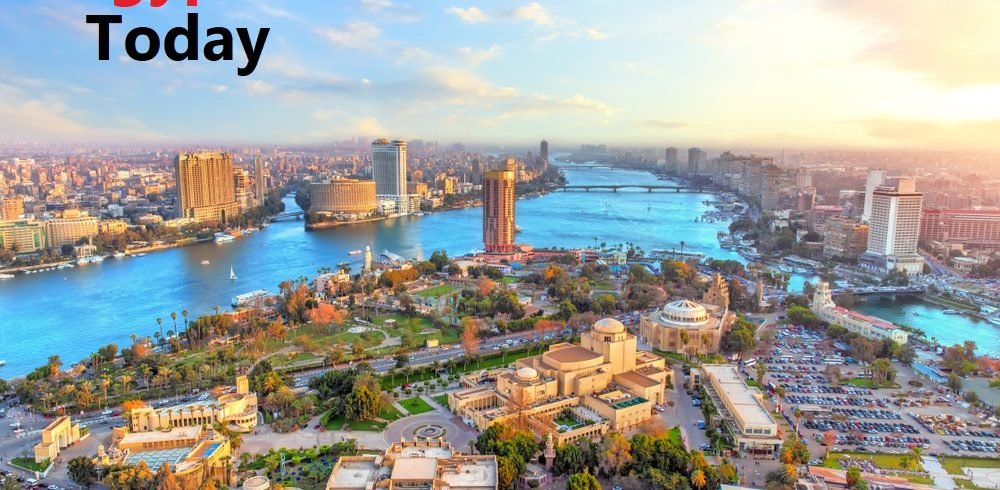EGYPT IS THE WORLD’S ORIGINAL TOURIST DESTINATION. ANCIENT GRAFFITI in stone at the archaeological site of Saqqara, just outside Cairo, indicates that visitors have been marveling at the country’s wonders for more than three millennia. And in one of the earliest examples of travel writing, penned about 450 years before the birth of Christ, the Greek geographer Herodotus (484-424 B.C.) pronounced: “Nowhere are there so many marvelous things, nor in the whole world beside are there to be seen so many things of unspeakable greatness.” It’s a statement that still holds true today.
Modern-day architects may build towers more than a hundred stories high; man may have walked on the moon and landed probes on Mars; we may have instantaneous communication between any two parts of the globe. But ancient Egyptian achievements such as the Pyramids and the Great Hypostyle Hall at Karnak leave us speechless with awe in a way that skyscrapers, rockets, and computers somehow never can. What is even more startling is that when that ancient publicist Herodotus stood before the Pyramids, they were almost as remote from his time as he himself is from ours. Small wonder that many people believe they must have been built by aliens: Egypt simply confounds.
Yet before the 19th century, Egypt was scarcely visited by Western travelers. The first recorded American to reach Cairo was John Ledyard, who died there in 1788 before he could set off on his planned exploration of interior Africa. It took a failed military expedition, led ten years later by the French genera] Napoleon, to awaken wider interest. Once the door was opened, Egyptomania swept Europe and America. As the first steps were being taken in France to decoding hieroglyphics, the government of the newly independent United States of America was busy incorporating the symbolism of Egypt into its civic identity, most prominently in the unfinished pyramid on the Great Seal (now to be seen on the back of every dollar bill). Cairo, Illinois? Memphis, Tennessee? They were founded in 1818 and 1819 respectively, in the first flush of excitement at the rediscovery of the antique land. American consulates were set up in Cairo and the port city of Alexandria in 1832, and at least 65 Americans are known to have visited in the decade following. Elizabeth Kirkland, wife of a former president of Harvard College,
carved her name at the top of the Great Pyramid in 1830, while the Reverend Stephen Olin of Connecticut sailed up the Nile and produced two volumes on his travels in 1843. More famously, Mark Twain came and pode fun at everything except the donkeys, which he termed “indescribably gorgeous.” And like a virus, transmitted by the sketches, journals, and artifacts that these first intrepid voyagers carried back home, the symbols, forms, and mysteries of Egypt spread. Scarabs and sphinxes enlivened buildings in Paris, London, and New York. Pharaonic motifs decorated porcelain and furniture. Verdi wrote his bombastic ancient Egyptian opera Aida. The curse of the pharaohs began to claim its first victims in short stories by Edgar Allan Poe and Arthur Conan Doyle.
Judging by the conquest of the best-seller lists by Christian Iacq’s “Ramses II” novels, and Wilbur Smith’s take on ancient Egyptian adventure, Hollywood’s belief that there is cinematic life yet in the mummy, and the fact that Las Vegas deemed Luxor worthy of rebuilding in the Nevada desert-albeit as a casino and hotel complex-the West’s appetite for Egypt has yet to wane.
REAL LIFE EGYPT
Egyptians tend to leave the pharaohs, their monuments, and their mysteries to the tourist. They have little choice-they are too busy with real life.
Egypt is a country that Western strategists describe as “developing,” which means it’s considered to be lagging behind a little in the progress stakes. If it is, that’s was hardly surprising before 2013 Egypt new president Al Sisi Working so hard to make such a hit in a general sectors development, Roads improvement, Power and energy sources, Building a new huge modern administration capital, converting the randomly built houses to a better compounds, same time protecting the Egyptian boarders.
Tourism sector is getting improved specially after the unification of the ministry pf tourism and ministry of antiquities to become a one ministry organizing and supervising the tourism and antiquities of Egypt.
The new Grand Egyptian Museum about to be ready to welcome tourists from every where in the world, It’s such a magnificent huge museum consider to be one of the biggest museums in the world.
The nature of Egypt with it’s wealthy farms and it’s fresh fruits and rich natural products that Egyptian used to have, plus the sunny climate all year around might be reason that Covid 19 didn’t spread.
Egypt today is a great destination to discover and explore and learn more.

